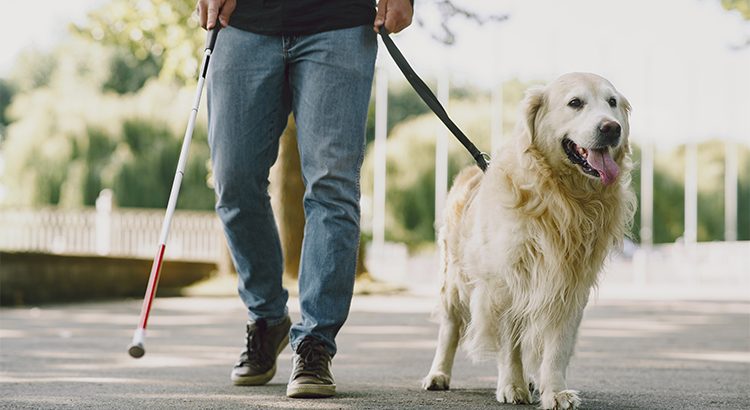
Discover the Difference Between Therapy Dogs & Service Dogs
There are over 50,000 therapy dogs in the United States and anywhere from 100,000 to 200,000 registered service dogs, estimates Service Dog Central. While dogs are faithful animals, providing us with comfort, excitement, and happiness, some dogs are trained to help us in our everyday tasks. There is however a difference between service dogs and therapy dogs. Let’s evaluate the differences between the two.
Service Dogs
A service dog is instructed to perform tasks and provide ease and safety to their handler’s disabilities in everyday life. Service dogs come under the American with Disabilities Act (ADA), allowing them to accompany their handler in public places like restaurants, stores, and hospitals. The term “service dog” also provides an umbrella in which there are 8 categories of types of service dogs according to The Spruce Pets:
Therapy Dog
A therapy dog is trained to provide stress relief during difficult situations. They are trained to fulfill psychological needs such as happiness, comfort during grieving and to overall increase the level of endorphins in humans. Therapy dogs are utilized with individuals who have a medical diagnosis of mental illness or disability related to other mental health disorders. They visit institutions such as hospitals, nursing homes, and schools. There are 3 types of therapy dogs:
Therapy dogs are healing companions for people with health conditions such as cancer, PTSD and dementia.
Best Breed for Therapy Dogs
Therapy dogs must have an excellent, stable temperament and easy-going personality. They also must be intelligent, able to walk off a leash, be focused, calm and sociable. Therapy dogs do not come under the ADA act and will only be allowed to places that allow pets. While there are many dogs who fit the criteria to be a great match fo the tasks of a therapy dog, there are 3 top ranking breeds:
Best Breed for Service Dogs
The American Kennel Club states that breeds with a long histories of being easy to train as well as reliable, calm under pressure, and not easily distractible are ideal pups to be service dogs. Service dogs must remain focused, attentive, and responsive to their owners’ needs, and unruffled by crowds of people, traffic, loud noises, or other animals. Their top 3 pics are:
How to Register a Therapy or Service Dog
To register your therapy dog, your dog first needs to take the Canine Good Citizen (CGC) test. After taking the test, you can certify your dog by registering them with Service Dog Certifications. If you feel confident that you have trained your dog enough to become a service dog, you can register them at Service Dog Certifications. You will need to pay a small fee of $39 for certification and $19.99 for Immediate Digital Access. It is advised to bring a Service Dog ID Card in public places.
If you are the trainer or owner of a therapy dog or service dog, your interest is likely high in providing pet insurance to cover your pooch in the event of accident or illness. At Pin Paws, we offer pet insurance that includes a number of value added benefits to support the wellness of your pet. Contact us today or visit our website to receive more information.




